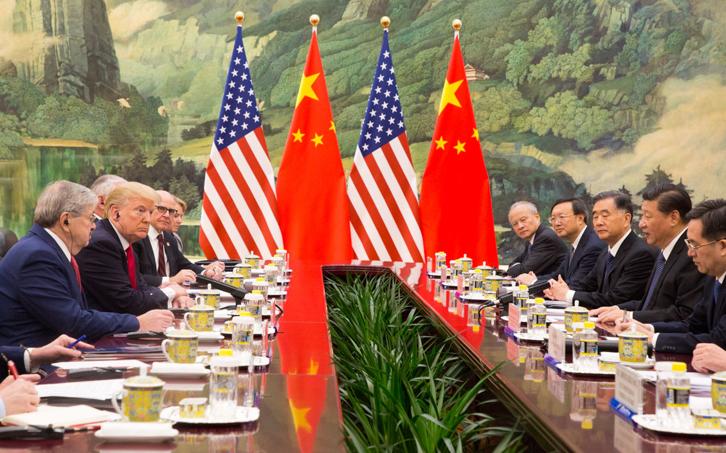The U.S. Wheat Associates (USWA) is celebrating the arrival of 68,350 metric tons of wheat from the...
China Targets U.S. Farm Equipment with Latest Tariffs

Mowers and combines are among the more than 50 types of agricultural goods affected by increased export duties.
Agricultural and farm machinery manufacturers could soon be affected by retaliatory tariffs from China after President Donald Trump’s levies took effect this past Tuesday.
Trump recently ordered 10% higher tariffs on imports from China and had previously threatened Canada and Mexico with duties that were later delayed. After the President’s tariffs on Chinese goods took effect, the country struck back with its own 10% tariffs on U.S. goods, including agricultural machinery, which became effective on February 10.
More than 50 U.S. farm and gardening products, such as mowers, egg sorting machines, sugarcane harvesters and combines were listed as subject to tariffs, according to China’s Ministry of Finance. Several types of tractors, sprayers and planters were also included on the list.
China’s tariffs come as Deere & Co, CNH and other farm equipment makers struggle with sluggish demand. After peaking in 2022, farmer incomes have declined in response to lower corn and grain prices.
Deere, whose earnings came out February 13. Deere has not yet commented on the effects that China’s retaliatory tariffs may have on its sales and operations.
CNH CEO Gerrit Marx has commented that it is “too early” to say what impact the changing trade landscape will have on the company’s operations, but will evaluate its production footprint in the months ahead.
In addition to agricultural machinery, China placed 10% tariffs on crude oil and some cars and pickup trucks. The country also declared 15% duties on coal and liquefied gas.
EDITOR’S TAKE:
Everyone is talking about tariffs these days. Are they being used as a negotiating ploy or are they going to have a real economic impact? In the case of Canada and Mexico, the answer came swiftly. Less than 24 hours after tariffs were announced against those two countries, they blinked and agreed to make changes. In the case of China, the jury is still out. They are more likely to hold out until Presidents Trump and Xi Jinping meet in person. If anything, the Chinese tariffs on ag machinery are likely to boost domestically produced products or send buyers looking for used alternatives. Although it is too soon to declare definitively, I don’t see the U.S. and China in another trade war like occurred during Trump’s first term. Uncertainty, of course, but farmers/ranchers are still optimistic about the future and you should be as well when it comes to selling trucks and SUV’s to farm/ranch customers. Put them at the top of your prospect list today.







